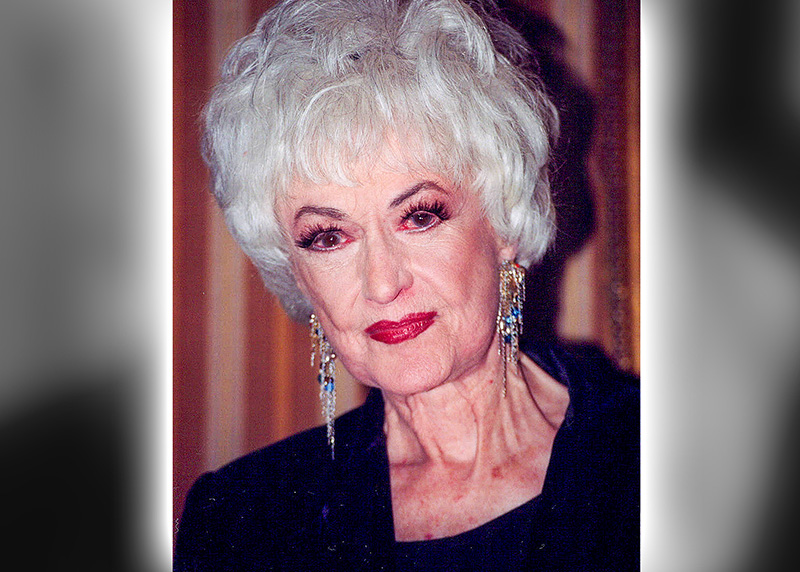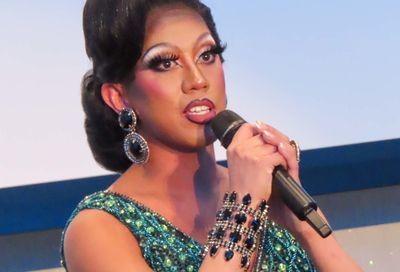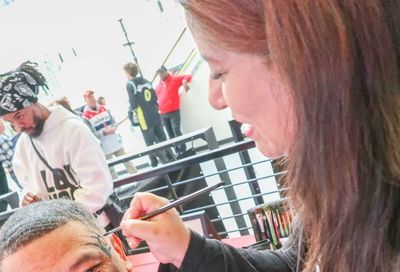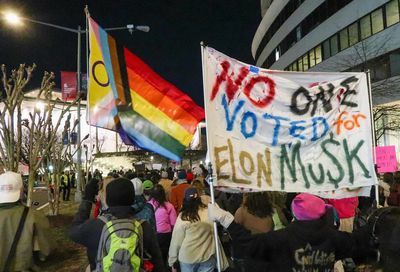Money Talks: The Power of the LGBT Dollar
LGBT organizations champion the link between purchasing power and companies' embrace of equality

“The dollar is just as strong as a vote at the ballot box these days,” says Jonathan Lovitz, vice president of external affairs at the National Gay & Lesbian Chamber of Commerce. “You have rights on paper in the name of equality, but your equity is your economic power.
“So even if it’s just a few dollars spent on stocking-stuffers, investing that money in pro-LGBT companies, and people who support diversity and inclusion, is a powerful statement,” he adds. “You’re using every cent to make a difference.”
Consumers are becoming savvier when it comes to spending their hard-earned dollars, particularly as the holiday season approaches. By frequenting stores with pro-LGBT reputations, equality-minded consumers of all types can pressure companies to use their influence outside of simple commerce. Lovitz points out one powerful example: Many major companies flexed their political muscle to resist Indiana’s Religious Freedom Restoration Act, which was criticized for condoning potential discrimination against LGBT people.
In recent years, embracing equality measures or being seen as tolerant and accepting of diversity has become a marketable trait. Companies can distinguish themselves from competitors, while at the same time appealing to a wider swath of potential customers. But this hasn’t always been the case, even as recently as 20 years ago, says Selisse Berry, the founder and CEO of Out & Equal Workplace Advocates, an organization that promotes policies to create safe and fair workplace environments for LGBT employees.
“When I started, only 5 percent of Fortune 500 companies included sexual orientation in their nondiscrimination policies. Now, that number is closer to 94, 95 percent,” Berry recalls. “People really weren’t talking about gender identity at the time, and now, about 54 to 55 percent include gender identity in their EEO or nondiscrimination policy as well. Companies understand that LGBT equality is just good for business, and discrimination is not good for business.”
What’s more, there has been an evolution in companies’ willingness to be more vocal in their support of things like nondiscrimination policies, spousal benefits, or sponsorships of major LGBT-centric events like Pride. Berry attributes this change in attitude to the efforts of various LGBT organizations, including her own, which hosts a yearly summit to educate employers about fostering an LGBT-supportive workplace environment and the benefits it can bring to the company. When corporate leaders realized that their competitors were gaining an advantage by embracing pro-equality policies, they began to recognize they could profit — both financially and in terms of branding or reputation — from adopting a similar stance.
“In the very beginning, we had a number of companies who said they’d support us because their employees were really committed to the cause. And they were committed, but they didn’t want anyone else to know,” Berry says. “Obviously, now, I don’t think we have any closeted sponsors any more. People want to say they’re supportive. Companies are out there, and hoping you’ll notice.”
One way of being noticed has been by getting listed as an LGBT-supportive business by the Human Rights Campaign’s (HRC) Corporate Equality Index (CEI), which rates businesses on their LGBT-inclusive workplace policies and practices, as well as any engagement on public policy. Released annually since 2002, a good CEI score is often touted by businesses as evidence of their commitment to equality.
Last week, ahead of Black Friday, HRC released its annual Buying for Workplace Equality guide, which divides companies into three separate categories based on their CEI score and other data on workplace policies. The top scores, which fall into the “green” category, indicate a demonstrated commitment to equality, with “yellow” scores given to those making progress, and “red” scores given to those companies lagging behind or who refused to answer the surveys on which the CEI is based.
Deena Fidas, director of HRC Foundation’s Workplace Equality Program, notes that the LGBT community’s purchasing power in the United States is estimated to be about $900 billion — an enticing figure for companies that wish to tap into potential sources of revenue. But she also notes that many companies see supporting the LGBT community not just as a gimmick to appeal to a niche market, but as a policy that benefits their brand across all markets. For instance, she says, many straight allies of the LGBT community wish to frequent or spend their money at businesses that they know are not engaging in or condoning discrimination.
“Well beyond just adopting policies, you see — quite literally — hundreds of businesses weighing in on LGBT public policy,” says Fidas. “Businesses are not shrinking back from being LGBT-inclusive. Far from wanting to be in the shadows, or simply quietly deal with being LGBT-inclusive, they see it as the right thing to do. They see speaking out on matters of equality as the right things to do, and also smart for their business.”
Fidas also says the timing of the HRC guide is ideal not only for consumers, but for companies who wish to improve their rating or learn more about implementing LGBT-friendly policies — something HRC can assist them with in developing. The next CEI is slated to be released in April 2016, giving those who wish to improve their standing a few months to begin making changes.
From a consumer standpoint, resources like the Buying for Workplace Equality guide can better inform their purchasing decisions. NGLCC’s Lovitz also recommends that LGBT customers do their research before making a purchase, to find and frequent businesses that use LGBT-owned suppliers of goods and services to stock their shelves. That way, he says, the money spent by equality-minded consumers will eventually circle back to the LGBT community.
“At the same time that you’re looking on the price tag for the red sticker that says ‘This is a sale,’ also look for the sticker that says we’re an NGLCC corporate partner, or even better, [an NGLCC] Certified Business Enterprise,” says Lovitz. “It takes a little bit of time to do your homework and go online, but social media is your best asset these days, to make sure you and your family and friends are shopping at the businesses and buying the brands that have our community’s back.”
Support Metro Weekly’s Journalism
These are challenging times for news organizations. And yet it’s crucial we stay active and provide vital resources and information to both our local readers and the world. So won’t you please take a moment and consider supporting Metro Weekly with a membership? For as little as $5 a month, you can help ensure Metro Weekly magazine and MetroWeekly.com remain free, viable resources as we provide the best, most diverse, culturally-resonant LGBTQ coverage in both the D.C. region and around the world. Memberships come with exclusive perks and discounts, your own personal digital delivery of each week’s magazine (and an archive), access to our Member's Lounge when it launches this fall, and exclusive members-only items like Metro Weekly Membership Mugs and Tote Bags! Check out all our membership levels here and please join us today!























You must be logged in to post a comment.